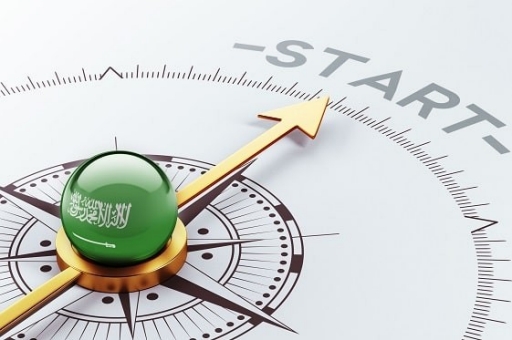
Top trends to watch in the smart cities market
Explore key smart city market trends for 2025–2030, from EV infrastructure to AI-powered waste systems – backed by the latest industry report.


|
The career progression for many young people in Saudi Arabia followed a fairly predictable path – graduate from college, land a lifetime gig at a large organization or the public sector, the end. That was then, this is now. A new generation of young Saudis is daring to break the mold by venturing out into the unpredictable, but ultimately rewarding, world of entrepreneurship. Not only that, but experienced talents are ditching their secure jobs to launch their ideas and products by starting up small businesses, notes Mustafa Nabulsi, KSA country director for regional tech incubator AstroLabs. Behind the shift in attitudes is a trail of success blazed by an earlier generation of visionaries, whose entrepreneurial flair was responsible for the likes of Hungerstation, DokkanAfkkar, Geidea, Almosafer, Mrsool, Unifonic and others. At LEAP, the tech festival slated for Riyadh in February 2022, small business startups will have their deserved place in the spotlight as organizers and guests explore various factors that make startups tick. Join us as we discuss what makes unicorn companies and how best to spot them early, how to make millions from investing in the right start-ups and making Saudi Arabia the technology start-up hub of the region. |

The new generation of entrepreneurs has something the earlier ones never had – increased institutional support for start-ups companies.
The Saudi government has set aside new funds to be allocated to SMEs through Monsha’at, the Saudi Venture Capital Company, the Social Development Bank and others. Also, key regulations have been changed to specifically support entrepreneurs. A major example of this is the entrepreneurial license initiated by the Ministry of Investment of Saudi Arabia (MISA) and other MISA regulations that allow local founders, international startups, and international VCs to expand to the Kingdom and impact the ecosystem, observes Nabulsi.
Finally, major acceleration and incubation programs are being launched and funded by the government to help local young entrepreneurs bring their startup companies to life and scale them. The Digital Entrepreneurship Center under The Ministry of Communications and Information Technology (MCIT) has been leading these efforts through initiatives such as the Tech Champion program, which seeks to enhance the economic contribution of technology SMEs, as well as the creation of a network of digital innovation labs linked to academia and investors. Monsha’at has also supported other initiatives to develop and sponsor the SME sector and increase its contribution to the national GDP from 20% to 35% by 2030.
“Saudi Arabia is uniquely positioned to foster an entrepreneurial environment for startups and SMEs to thrive,” says Ibrahim Alnasser, Digital Entrepreneurship Centre General manager, MCIT.
“We have a very young population, which means that tech-enabled solutions can gain wide adoption. Furthermore, we have a government and private sector that is willing to invest.
Last year witnessed a record year for seed investments in startups and SMEs in the Kingdom and even though COVID-19 has had something of an impact on investment, companies with great ideas and viable business plans have been able to attract significant investment this year,” he adds.
Outside the government, corporations and angel investors are now supporting both internal entrepreneurship (intrapreneurship) and startups in general, notes Nabulsi.
Major companies such as Aramco and STC, for example, have been dedicating significant resources and support to run their intrapreneurship programs ‘Waed’ and ‘InspireU’ respectively, which helped to launch several startups in the region and support entrepreneurs with seed funding to start off their venture. Other examples can be found in initiatives such as Elm, Takamol, and MiSK.
This growing momentum is a godsend for startups such as Speero.
Speero is a SaaS platform that tackles the $9bn vehicle value chain industry in Saudi Arabia. “There are no existing digital solutions in the space, hence our desire to digitize this value chain,” says Abdullah Bin Shamlan, co-founder and MD at Speero.

Earlier this year, Saudi Technology Ventures co-led an $8.6 million investment round in Noon Academy, a regional ed-tech platform that gives students access to social cooperative learning and tutoring. The platform has already served more than two million students across Saudi Arabia and Egypt.
“The next five years will witness a 10-fold increase in VC funding in the Kingdom. LEAP will bring together HNWI, VC funds and corporate investors, in addition to over 700 startup companies to facilitate and catalyze the country’s start-up ecosystem,” says Alnasir. The expansion of start-ups will revolutionize the financial technology space.
As the whole ecosystem develops, local angel investors and VCs have started to grasp the potential in high-value ventures. This has impacted the whole chain, as the investors are key players in making it successful, says Nabulsi.
“Traditionally, the focus was on ‘safe’ enterprises with known business models. But recently, the focus has been shifting towards innovation, technology, and new business ideas that prove to be impactful in the long run,” Nabulsi adds.
Shamlan concurs, saying it is becoming easier to secure seed funding. His own start-up Speero raised 1.7 million dollars two years ago.
With the massive transformation taking place in the country, and the openness to international enterprises and investments, more entrepreneurs and innovators will capitalize on this opportunity to launch their ventures with a handful of grants for small business start-ups. The focus or the type of industries might vary over the years, but the fundamental idea of having startups and SMEs shaping and impacting the local economy is only going to grow stronger.

Explore key smart city market trends for 2025–2030, from EV infrastructure to AI-powered waste systems – backed by the latest industry report.

Learn how generative AI is unlocking the true potential of digital twins – to make smart cities more efficient, inclusive, and citizen-focused.

The smart cities of the future will use tech to lower emissions, cut urban temperatures, and improve quality of life in highly populated areas.

Explore key smart city market trends for 2025–2030, from EV infrastructure to AI-powered waste systems – backed by the latest industry report.

Learn how generative AI is unlocking the true potential of digital twins – to make smart cities more efficient, inclusive, and citizen-focused.

The smart cities of the future will use tech to lower emissions, cut urban temperatures, and improve quality of life in highly populated areas.